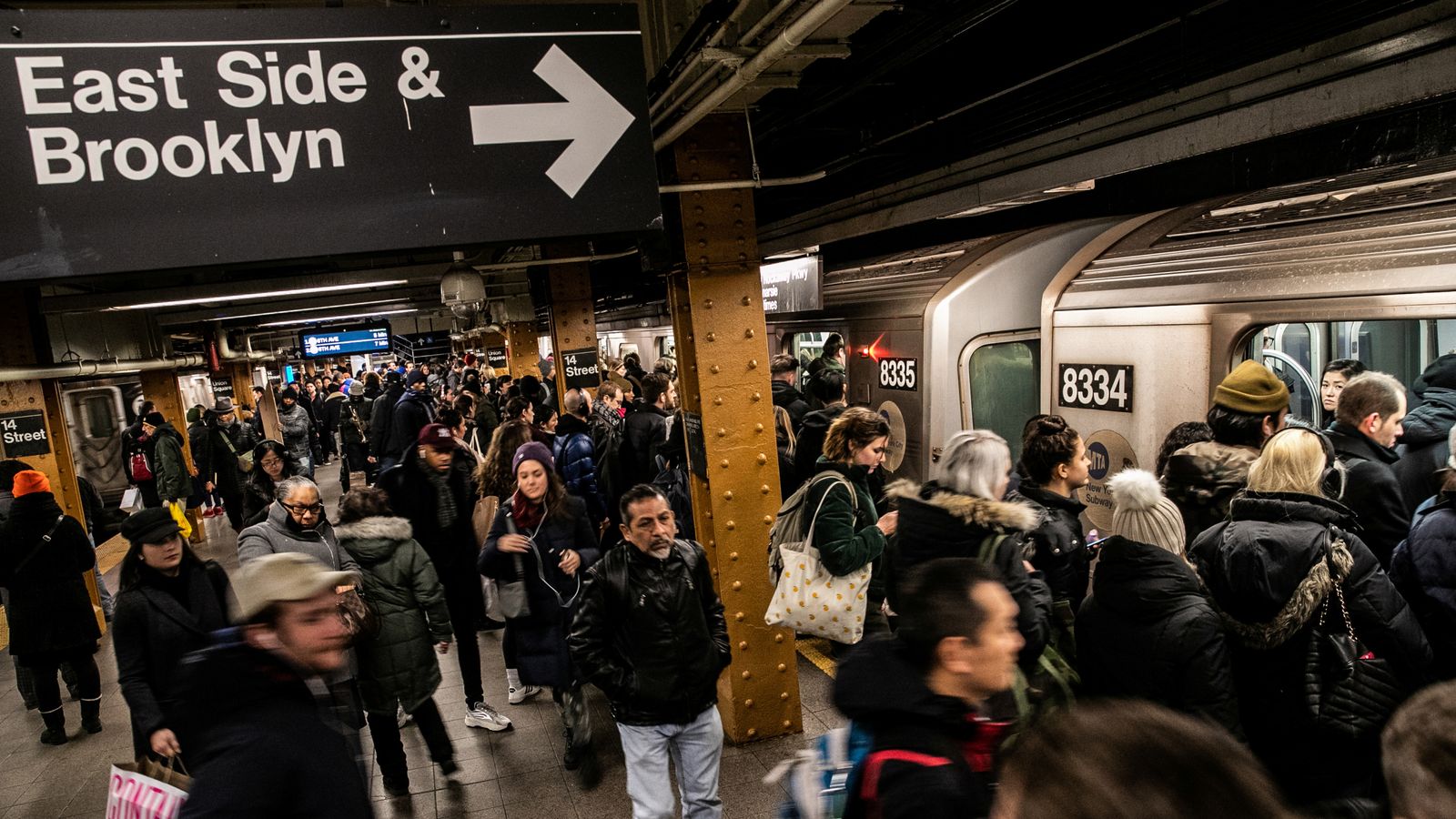Jamie Dimon has spoken.
The chief executive of JP Morgan Chase, one of Wall Street’s most influential figures, told employees of America’s biggest bank earlier this week that he expects to see them back in the office by early July.
He reinforced that yesterday by saying he will no longer hold meetings via Zoom.
Mr Dimon, who was speaking at the Wall Street Journal’s CEO Council Summit, has been back in the office since June last year.
He told the Journal’s editor-in-chief, Matt Murray, there was now a need for his employees to return to work.
He added: “The American public knows 100 million people go to work every day, 65,000 people go to our branches every day.
“Firemen, police, sanitation, hospitals, retail, pharmacies, banks, groceries – it’s 40 million of them that go to work.
“And yeah, kind of they [JP Morgan employees] like it at home, stuff like that, but it doesn’t work really well.
“My view is there will be more hybrid work, it [the pandemic]’s accelerated that.
“But it doesn’t work for younger people, it doesn’t work for those who hustle, it doesn’t work in terms of spontaneous idea generation, it doesn’t work for culture.”
He said employees had been told that, for one or two days a week from 17 May, they would be expected back in the office – “get used to it, get your head wrapped around it” – and that, from mid-July, they would be back in the office regularly.
The bank is planning to ask employees back to the office on rotation so that the bank complies with the 50% occupancy cap imposed by the US government.
Mr Dimon added: “My view is that sometime in September, October it will look just like it did before.
“And yes, the commute, you know, yes, people don’t like commuting, but so what?”
Asked whether he had received “blowback” from employees, Mr Dimon said he had, “but that’s life”.
He went on: “The wife of a husband [who works for the bank] sent me a nasty note about ‘how can you make him go back?’.
“We’re going to go to work. This is what I remind people – it’s got to work for the clients.
“It’s not about whether it works for me.
“I have to compete – certain jobs, yes, you can probably do four days a week from home, that’s fine, I’m not against something like that, so it will be by job type.
“I’m about to cancel all my Zoom meetings. I’m done with it.”
Mr Dimon said he went to California three months ago and met hundreds of people face to face before returning to New York “brimming with ideas and thoughts that you don’t get from the Zoom world”.
He added: “Over a glass of wine, there’s clients [who] tell me the truth about why we got a piece of business or why we didn’t…a bunch of clients who gave business to somebody else because bankers from the other guys visited and ours didn’t.
“OK, well, that’s a lesson.
“Abraham Lincoln said ‘things may come to those who wait, but only the things left by those who hustle’.”
JP Morgan Chase is not the only big name Wall Street employer urging people to return to the office.
Goldman Sachs sent a memo to employees on Tuesday this week in which it asked those in the US to “make plans to be in a position to return to the office” by 14 June in the US and by 21 June in the UK.
Around a fifth of the bank’s US employees and a quarter of its UK employees are now back in the office but David Solomon, the chief executive, said it was now appropriate to step up that activity given the pace of vaccine roll-out in the two countries.
He told colleagues in a memo: “We know from experience that our culture of collaboration, innovation and apprenticeship thrives when our people come together and we look forward to having more of our colleagues back in the office so that they can experience that again once again on a regular basis.”
Mr Solomon told a conference in February this year that working from home was “an aberration that we are going to correct as quickly as possible”.
The statements from both will have ramifications for workers in the UK.
JP Morgan has 19,000 UK employees, including 12,000 in London, based mainly at Canary Wharf.
Goldman has 6,000 employees in London at its £1bn headquarters at Plumtree Court, just off Farringdon Road, which opened in 2019.
It is by no means clear, though, that UK employers in the financial services sector will adopt as rigorous an approach.
Even Barclays, whose investment banking arm makes it more similar to the big Wall Street names than other players, is taking things more gently.
Jes Staley, the Barclays chief executive, said last week that the bank was likely to be a little more flexible than its US competitors but still said it was expecting more and more people to return to its offices in Canary Wharf and in New York from June.
Elsewhere, the likes of NatWest and the accounting and business services giants PwC and Deloitte are among those major City employers who have said they expect to adjust permanently to a hybrid working model.
Linklaters, one of the City’s biggest law firms, has even offered voluntary redundancy to 225 secretaries and administrative assistants in a recognition that more of its employees will be working from home more of the time.
Korn Ferry, the recruitment firm, today published polling suggesting that one in three workers would turn down a job that requires them to work in the office full time.
Alan Guarino, Korn Ferry vice chairman, told CNBC: “The reality is that probably 50% of all workers or more will be hybrid.
“We are definitely not going back to the office in the way we did back to the pandemic.
“70% want some hybrid offer – there will have to be a new pact between employer and employee.”
So the lines are being drawn for an uneasy negotiation between City employers and their workforces over the future nature of work.
Employees themselves may even in some cases drive the return to work themselves.
In the cut-throat world of investment banking, for example, many are expected to want to be in the office, in case those working from home come to be judged by colleagues to be seen as second-class citizens.
At present, the Square Mile still feels pretty quiet, albeit not as deserted as it was last year.
This is confirmed by Transport for London.
Prior to the pandemic, there were around one million tap-in and tap-outs recorded daily in Tube stations in the City, but recently the level has been around 180,000 daily.
Some landlords of City office space are admitting privately that, unless there is a big pick-up in commuter numbers in May, a widespread return to work may not be on the cards until the summer is over and the schools have gone back in September.
The thousands of retail, leisure and hospitality businesses geared to serving workers in the Square Mile and Canary Wharf will hope that is too pessimistic an outlook.






















